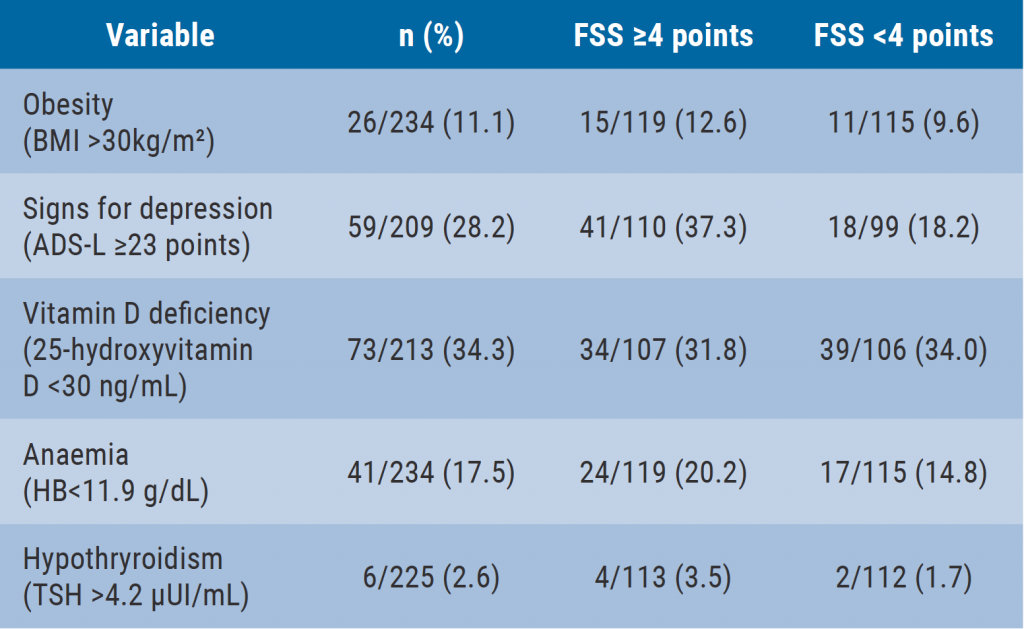“Patients with elderly-onset rheumatoid arthritis (RA) could present with higher disease activity and increased disability as compared with those with young-onset RA. Despite this, previous studies showed elderly patients receive biologics less frequently than younger individuals, suggesting patients with elderly-onset RA are potentially undertreated,” said Dr Sadao Jinno (Kobe University School of Medicine, Japan), the study’s lead author. “On the other hand, in daily practice, many elderly-onset RA patients benefit from treatment with biologics. With our study we wanted to investigate if there are differences in efficacy and safety of biologics between the 2 age groups,” said Dr Jinno.
A total of 7,183 patients with RA, aged ≥18, who were enrolled in a Japanese multicentre observational registry between September 2009 and December 2017 took part in the study. The patients had to have a Disease Activity Score 28 (DAS28) ≥3.2 and erythrocyte sedimentation rate (ESR) measurement when they started biologics. Elderly-onset RA was defined as disease onset at ≥60 years. Dr Jinno and his team assessed the relationship between the age of RA onset and the clinical effectiveness of therapy at 48 weeks. The primary outcome for the study was a Clinical Disease Activity Index (CDAI) score at 48 weeks. Secondary outcomes included biologic retention at 48 weeks, achievement of a clinical disease activity index (CDAI) remission, and low disease activity or remission.
There were fewer patients on biologics in the elderly-onset RA group compared with those in the young-onset RA group (18.3% vs 28.0%, P<0.001). Of 989 patients who initiated biologics, 364 (37%) had elderly-onset RA. After adjusting for differences in baseline characteristics between the 2 age groups, researchers found no significant differences in the CDAI scores at 48 weeks. There was a slight trend towards lower CDAI remission rates in the elderly-onset group, but low disease activity/remission rates were similar between the 2 groups. “Our findings showed there were no significant differences in CDAI scores at 48 weeks between elderly-onset and young-onset RA, suggesting biologics can be used for those with elderly-onset RA as effectively as for those with young-onset RA. We also found there was no difference of adverse event discontinuation rates between the 2 groups,” concluded Dr Jinno. Further research in patients older than 75 years is needed to further address this issue of biological therapy in older RA patients.
- Jinno S et al. Abstract 1345. ACR 2019, 9-13 November, Atlanta (GA/USA).
Posted on
Previous Article
« JAK1 inhibition shows remarkable efficacy in AS Next Article
Proteome abnormalities improve prediction of RA development »
« JAK1 inhibition shows remarkable efficacy in AS Next Article
Proteome abnormalities improve prediction of RA development »
Table of Contents: ACR 2019
Featured articles
Late-Breaking Abstracts
Lowest risk of infection after therapy with an IL-12/IL-23 blocker
Calcium pyrophosphate deposition disease: an independent risk factor for cardiovascular complications
Proteome abnormalities improve prediction of RA development
RA patients in remission benefit from continued therapy with conventional DMARDs
Selective IL-23 blocker shows remarkable efficacy in patients with psoriatic arthritis
Corticosteroid therapy in GCA: higher platelets – lower relapse rate
Spotlight on Rheumatoid Arthritis
Filgotinib promising in RA patients naïve to methotrexate
Sustained efficacy of monotherapy with upadacitinib after 48 weeks
Biologics show similar activity in patients with elderly-onset RA
Tocilizumab outperforms rituximab in RA patients with low level of synovial B cell infiltration
Treatment decisions should not be guided by ultrasound findings
Cancer treatment with checkpoint inhibitors in RA patients?
What is Hot in Systemic Lupus Erythematosus
Anifrolumab succeeds in second phase 3 trial in SLE
Depression closely related to fatigue in SLE patients
Spondyloarthritis – The Beat Goes On
Psoriasis onset determines sequence of symptoms
Higher psychiatric comorbidity in women with PsA
JAK1 inhibition shows remarkable efficacy in AS
CARDAS study shows increased prevalence of cardiac valvular disorders in AS patients
Osteoarthritis – State-of-the-Art
Hand OA: low-dose corticosteroids improve symptoms
Opioids: no quality of life benefits for OA patients
Walking speed is a predictor of mortality in patients with knee OA
Reproductive Issues in Rheumatic Disease
Few serious infections in offspring with exposure to non-TNFi biologics or tofacitinib
Prevention of congenital heart block may be possible with hydroxychloroquine
TNFi for RA during pregnancy – to stop or not to stop?
Vasculitis – Novel Treatment Modalities
Rituximab maintenance superior to azathioprine in ANCA-associated vasculitis
Prolonged remission after stop of tocilizumab for patients with giant cell arteritis
Best of the Posters
Antifibrotic therapy slows disease progression independent of corticosteroid use
Fibromyalgia patients often experienced abuse in childhood
Related Articles
February 4, 2020
Psoriasis onset determines sequence of symptoms
February 4, 2020
Biologics show similar activity in patients with elderly-onset RA

February 4, 2020
Depression closely related to fatigue in SLE patients
© 2024 Medicom Medical Publishers. All rights reserved. Terms and Conditions | Privacy Policy
HEAD OFFICE
Laarderhoogtweg 25
1101 EB Amsterdam
The Netherlands
T: +31 85 4012 560
E: publishers@medicom-publishers.com

